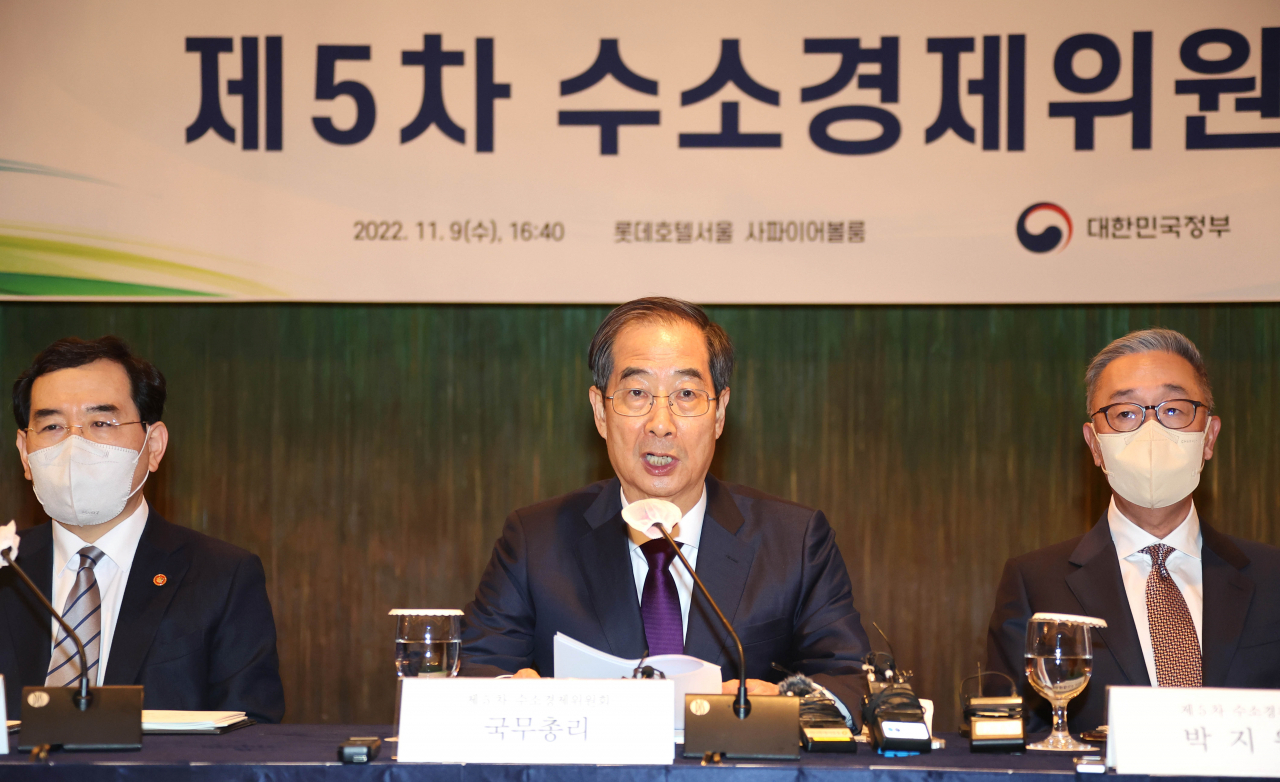
SEJONG -- South Korea on Wednesday unveiled a road map to take the lead in the global hydrogen industry over the next seven years, stressing the energy business would drive the growth of the nation's economy.
At the meeting, presided over by Prime Minister Han Duck-soo, the Ministry of Trade, Industry and Energy said the plan is to have 600 hydrogen businesses of global competitiveness, from the current 52, by 2030. To achieve this goal, the government will ease "unreasonable regulations" and help the private sector secure investments.
The plan also includes supporting businesses developing hydrogen fueling stations, hydrogen turbine generators and liquefied hydrogen cargo vessels to boost their global competitiveness.
The technology level currently possessed by local businesses remains just 75 percent of those in developed nations.
The government will support businesses with hydrogen technology to enter overseas markets and expand both public and private investments in hydrogen-powered mobility, including buses, trucks, trams, ships and military vehicles.
For the local market, the Industry Ministry said it would raise the tally for hydrogen-fueled commercial vehicles to 30,000 units, compared to 211 as of 2022.
About 70 liquefied hydrogen fueling stations will be built across the nation by 2030 and the portion of hydrogen power generation will expand to 7.1 percent from the current zero. Subsidies and technological assistance will be provided for hydrogen recharging businesses, it added.
To meet growing demand for hydrogen, the nation will establish a liquefied hydrogen plant capable of producing 40,000 metric tons a year, while logistics hubs for liquid ammonia will be set up in the western part of the nation, which includes Boryeong and Dangjin in South Chungcheong Province; the southern part, which includes Yeosu in South Jeolla Province and Hadong in South Gyeongsang Province; and the eastern part, which includes Gangneung and Samcheok in Gangwon Province.
Hydrogen-oriented conveyance pipes will be established in routes linking Incheon, Bucheon, Anyang, Pangyo, Bundang, Gwanggyo, Suwon, Hwaseong, Osan, Dongtan, Pyeongtaek and Dangjin.
To accommodate the overseas supply of hydrogen, the government plans to establish supply channels in Southeast Asia and the Middle East, in collaboration with public companies and the private sector.
The ministry expected that these policies will be beneficial in terms of local conglomerates’ fulfillment of the RE100 target, under which they are to use 100 percent renewable energy without resorting to fossil fuels by 2050.
At the meeting, the Ministry of Science and ICT made public ways to support hydrogen technology development for the private sector.
Conglomerates and public firms, which will actively participate in the state-led project, will include Samsung, Hyundai Motor, SK, Posco, Lotte and Korea National Oil.





